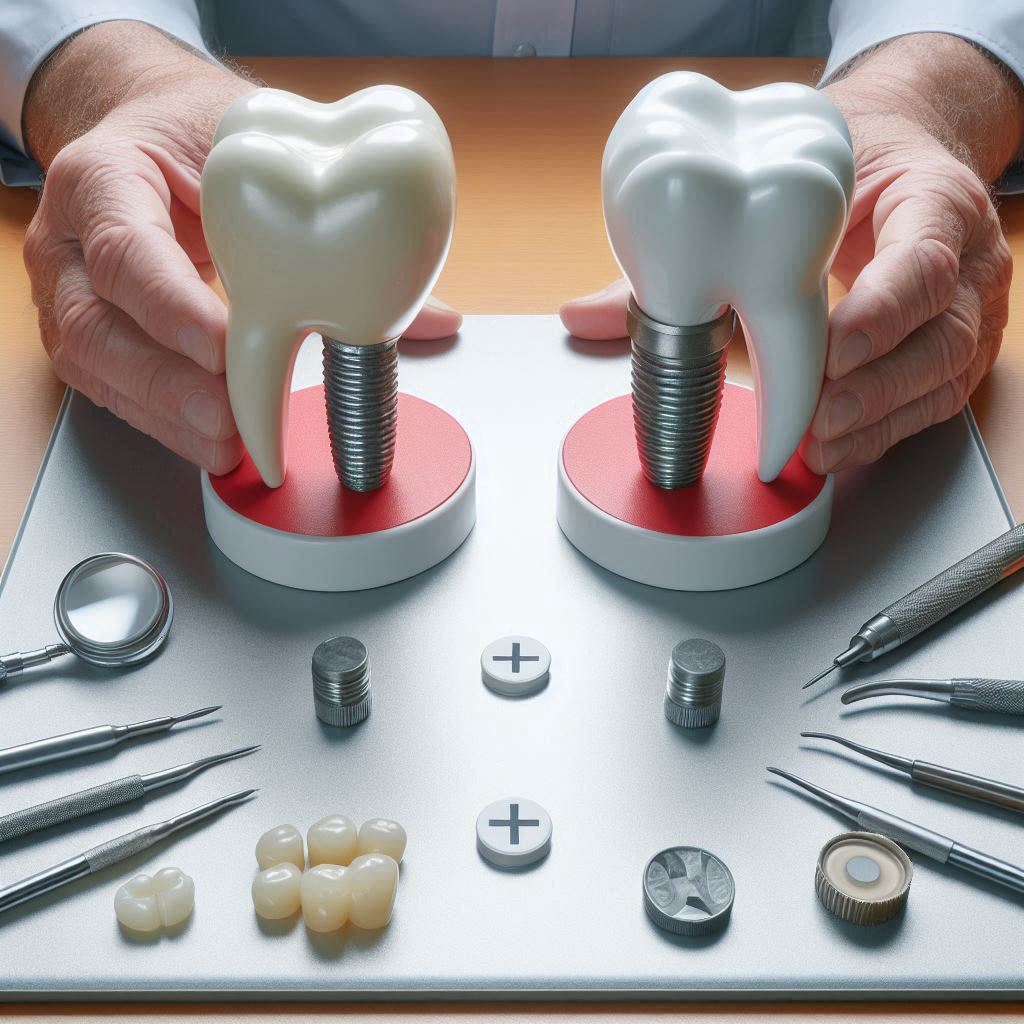The relationship between your mouth and your stomach is often underappreciated, but it is critical to understanding your overall health. The mouth, as the entry point to the digestive system, is deeply connected to the function and health of your stomach, liver, intestines, and beyond. Often, the signs that something is wrong with your stomach or digestive tract manifest in the mouth first. Symptoms like bad breath, dry mouth, unusual tastes, ulcers, or even gum disease may point to deeper issues that require attention.
This guide will explore how specific symptoms in the mouth might signal underlying problems in the stomach, offering a more comprehensive understanding of the connection between oral health and digestive health. Through a thorough examination of various symptoms, their potential causes, and insights into when you should consult a healthcare professional, this article aims to arm you with knowledge that could improve both your digestive and oral health.
Understanding the Connection: How the Mouth Reflects Stomach Health
Before diving into the specific signs to look for in the mouth, it’s essential to understand how and why the mouth can reflect what’s happening in your stomach. Your digestive system is responsible for breaking down food and absorbing nutrients. It is a delicate balance of enzymes, acids, and bacteria that work in harmony to keep everything functioning smoothly.
However, when there is an imbalance—due to an infection, digestive condition, or dietary issues—the body may attempt to send signals. These signals often manifest in the mouth, where the mucosal lining of the mouth, salivary glands, taste buds, and gums are directly impacted by what’s happening in the digestive tract.
The mouth is home to more than 700 types of bacteria, and just as with the gut, this balance can be disrupted. The stomach, which produces powerful digestive acids, can influence the mouth through its contents, especially if things are not moving properly or if the stomach is compromised. Acid reflux, ulcers, and infections can lead to changes in the mouth’s environment.
Bad Breath (Halitosis): A Common but Telling Symptom
Bad breath is one of the most obvious and common symptoms people associate with poor oral hygiene. However, it is crucial to remember that persistent bad breath, also known as halitosis, could signal something far more serious than needing to brush your teeth more frequently.
Potential Causes of Bad Breath Linked to Stomach Health:
- Gastroesophageal Reflux Disease (GERD): One of the leading causes of bad breath associated with the stomach is GERD, or acid reflux. This occurs when stomach acid and digestive enzymes escape the stomach and travel upward into the esophagus and, sometimes, into the mouth. When stomach acid reaches the mouth, it often causes a sour, bitter, or metallic taste. In addition, this acid can lead to chronic bad breath. GERD may also result in heartburn and discomfort in the chest, making bad breath one of its most prominent signs.
- Helicobacter Pylori (H. pylori) Infection: This bacteria is a well-known culprit in the development of stomach ulcers. The infection can cause inflammation and irritation in the stomach lining, often resulting in symptoms like bloating, nausea, and, notably, bad breath. H. pylori can also alter the balance of bacteria in the mouth, contributing to persistent foul odors. Since the bacteria reside in the stomach and intestines, its effects are often felt both there and in the mouth.
- Gastroparesis: This condition, commonly associated with diabetes, leads to delayed gastric emptying. The stomach takes longer than normal to empty its contents, which can result in bloating, nausea, and persistent bad breath. A person with gastroparesis might experience a mouth that feels constantly full of an unpleasant taste due to the delayed digestion and the regurgitation of partially digested food.
- Stomach Infections and Ulcers: Stomach infections, particularly those caused by viral or bacterial agents, can lead to both gastrointestinal distress and changes in the breath. An infected stomach lining, or peptic ulcers caused by prolonged H. pylori infections, can affect your oral health by releasing foul-smelling gases.
What to Do About It:
If bad breath is persistent, it is essential to take it seriously. Begin by practicing good oral hygiene, including regular brushing, flossing, and the use of mouthwash. However, if bad breath continues despite your oral hygiene efforts, or if it is accompanied by other symptoms like stomach pain, bloating, or heartburn, you may need to visit a healthcare professional. GERD, H. pylori infections, and other gastric issues can be diagnosed through simple tests and managed with proper medical intervention.
Dry Mouth (Xerostomia): Not Just a Side Effect of Medications
Dry mouth, also known as xerostomia, can occur for several reasons, including medication side effects, dehydration, or stress. However, when it becomes a chronic issue, it may point to an underlying digestive problem. Saliva plays a crucial role in maintaining oral health by neutralizing acids, washing away food particles, and preventing bacterial buildup. When saliva production is insufficient, the mouth becomes dry, which can lead to discomfort, difficulty swallowing, and an increased risk of cavities and gum disease.
Dry Mouth and Its Link to Stomach Health:
- Acid Reflux: In cases of acid reflux or GERD, stomach acid that leaks into the esophagus can irritate the mouth and reduce the production of saliva. The acid may cause the mouth to dry out, creating an uncomfortable feeling of thirst, and make it difficult for the mouth to naturally cleanse itself. Dry mouth is often reported in individuals suffering from chronic acid reflux, particularly during or after episodes of reflux.
- Dehydration Due to Digestive Issues: Conditions that affect the stomach, such as diarrhea or vomiting, can lead to dehydration. Dehydration, in turn, often causes dry mouth. For instance, a stomach infection or food poisoning can cause vomiting and diarrhea, leading to the loss of fluids and electrolytes that are necessary for proper hydration. This can trigger the sensation of dry mouth and a reduced flow of saliva, making the mouth feel parched.
- Stomach Ulcers: In cases of stomach ulcers, particularly those associated with H. pylori infection, dry mouth can occur as part of the overall symptoms. The body’s inflammatory response to infection and irritation in the stomach can impact the mouth’s moisture levels. Additionally, medications used to treat ulcers, such as antibiotics, may contribute to dehydration and dryness in the mouth.
What to Do About Dry Mouth:
To combat dry mouth, increase your fluid intake, particularly water, and consider using saliva substitutes or mouth moisturizers. Avoid caffeine and alcohol, as they can further dry out the mouth. If dry mouth is persistent and seems to correlate with digestive symptoms like acid reflux or bloating, it’s a good idea to consult a doctor. They may recommend testing for GERD or an H. pylori infection and can suggest treatment options to help both your stomach and your mouth.
White Coating on the Tongue: A Symptom to Watch
A white coating on the tongue can be more than just a sign of poor oral hygiene. It can sometimes indicate an imbalance in the digestive system, as the tongue can accumulate bacteria, dead cells, and food particles. The coating might appear white, yellowish, or even gray, and can vary in intensity.
What a White Tongue Coating Can Indicate About Your Stomach:
- Acid Reflux or GERD: GERD can cause the stomach’s contents, including acid, to travel up into the mouth. This acid can irritate the tongue and cause the appearance of a white coating. The reflux may also result in a constant acidic taste in the mouth, which can further lead to the build-up of bacteria and dead cells on the tongue.
- Yeast Infections (Oral Candidiasis): Overgrowth of the yeast Candida albicans in the mouth can lead to a white coating on the tongue. While Candida naturally resides in the mouth, an imbalance caused by factors such as antibiotics, immune system suppression, or poor digestive health can lead to an overgrowth. Candidiasis often accompanies digestive disorders like irritable bowel syndrome (IBS) or Crohn’s disease, and individuals with weakened immune systems are particularly susceptible to this condition.
- Stomach Ulcers and H. pylori Infections: The bacteria responsible for stomach ulcers—H. pylori—can affect both the stomach lining and the mouth. As the bacteria disrupt the stomach’s normal function, it can lead to the development of a white or yellowish coating on the tongue, a sign of a possible infection.
What to Do About It:
The white coating on the tongue can often be remedied by good oral hygiene practices, such as brushing the tongue and using an antibacterial mouthwash. If the coating persists or if it is accompanied by additional symptoms like abdominal pain, bloating, or nausea, it may be time to see a healthcare provider. A test for H. pylori or a thorough evaluation of your digestive health could uncover an underlying problem that needs to be addressed.
Mouth Sores and Ulcers: A Link to Digestive Distress
Mouth sores, such as canker sores, are small, painful lesions that can appear on the inside of the mouth, gums, or tongue. While these are typically harmless and often caused by trauma or stress, recurring or persistent mouth ulcers can indicate a more significant issue within the digestive system.
Possible Causes of Mouth Sores Related to Stomach Health:
- Gastrointestinal Conditions: Autoimmune conditions such as Crohn’s disease, celiac disease, or ulcerative colitis, which affect the gastrointestinal tract, can also lead to painful mouth ulcers. These conditions cause inflammation in the gut, and that inflammation can sometimes extend to the mouth, resulting in canker sores or other types of lesions.
- H. pylori Infection: As mentioned earlier, H. pylori infections not only affect the stomach lining but can also cause mouth ulcers. The bacteria contribute to an inflammatory response in the digestive tract, which can lead to oral discomfort.
- Vitamin Deficiencies: Deficiencies in certain vitamins, particularly vitamin B12 and folic acid, are linked to recurrent mouth ulcers. These deficiencies are often a result of malabsorption in the digestive system, where the body is unable to properly absorb nutrients from food due to digestive problems.
What to Do About It:
If mouth sores persist or worsen, especially when accompanied by digestive symptoms like diarrhea, bloating, or abdominal pain, it’s important to consult a healthcare provider. A simple blood test can help determine if vitamin deficiencies are to blame, or further tests can evaluate the presence of gastrointestinal disorders that might be contributing to the issue.
Conclusion
The connection between oral health and the digestive system is significant, with the state of your mouth often reflecting the health of your stomach. Symptoms like persistent bad breath, dry mouth, unusual tastes, mouth ulcers, and gum disease can be indicators of underlying digestive issues. Paying attention to these signs is crucial for maintaining overall health.Bad breath, for example, can sometimes point to conditions like acid reflux or GERD, while dry mouth may be related to dehydration or digestive disorders. Unusual tastes in the mouth could signal gastrointestinal problems such as an infection caused by H. pylori or even an imbalance in gut bacteria. Mouth ulcers and gum disease may be linked to inflammation or other digestive issues that need to be addressed.
If any of these symptoms persist, especially when accompanied by other digestive issues like bloating, abdominal pain, or changes in bowel movements, it’s essential to seek medical advice. Conditions such as GERD, H. pylori infections, ulcers, and other gastrointestinal disorders can significantly affect your overall health, and early intervention can lead to more effective treatment and better long-term outcomes.
Taking care of both your oral and digestive health is a proactive approach to well-being. Brushing and flossing regularly, staying hydrated, eating a balanced diet, and avoiding triggers like acidic foods or smoking can help maintain good oral hygiene. Simultaneously, managing stress, maintaining a healthy diet, and staying mindful of any digestive discomfort can promote a healthier stomach. By prioritizing both your oral care and digestive health, you can improve your overall quality of life, support better digestion, and enjoy a confident, healthy smile.
SOURCES
Bajaj, J. S. (2019). Gastroesophageal reflux disease and its oral manifestations. Journal of Clinical Gastroenterology, 53(6), 408-416.
Berg, K., & Green, D. (2020). Helicobacter pylori and its role in gastrointestinal disorders. American Journal of Gastroenterology, 115(12), 2040-2050.
Chen, Y., Wang, Y., & Yu, J. (2018). The association between dry mouth and gastrointestinal diseases: A clinical review. Journal of Oral Science, 60(2), 171-179.
Datz, C., & Morrow, C. M. (2017). Understanding the connection between the mouth and gut. Digestive Diseases and Sciences, 62(6), 1516-1523.
Davis, S. E., & Wright, C. W. (2016). Candidiasis and gastrointestinal dysfunction: A review of the evidence. Medical Mycology, 54(3), 320-327.
Graham, D. Y., & Lee, W. M. (2021). Helicobacter pylori infection and its impact on oral health. Clinical Infectious Diseases, 73(8), 1420-1426.
Jiang, X., & Xie, Q. (2019). Acid reflux and oral health: The connection between GERD and bad breath. Journal of Clinical Dentistry, 30(4), 132-138.
Johnson, K. M., & Petersen, L. R. (2017). Gastroparesis and its association with dry mouth and gastrointestinal health. Journal of Gastrointestinal Disorders, 6(1), 45-53.
Katz, P. O., & Gerson, L. B. (2018). Clinical management of gastroesophageal reflux disease. American Journal of Gastroenterology, 113(3), 303-309.
Khan, I. A., & Kumar, S. (2020). Vitamin deficiencies and mouth ulcers: The role of gastrointestinal malabsorption. Journal of Nutrition and Oral Health, 2(4), 112-118.
Murray, C. D., & Rahman, S. (2017). The role of the oral cavity in systemic diseases: A link between gum disease and gastrointestinal disorders. Journal of Periodontology, 88(5), 1230-1241.
Nayak, P., & Bhaskar, R. K. (2019). Oral manifestations of gastrointestinal diseases: A comprehensive review. International Journal of Dentistry and Oral Science, 6(1), 1-9.
Tao, T., & Zhao, M. (2018). The impact of gastrointestinal health on oral health: An in-depth review. Journal of Clinical Oral Health, 13(7), 88-95.
Tariq, M., & Kaur, G. (2020). Diagnosis and management of H. pylori infection and its implications on oral health. World Journal of Gastroenterology, 26(10), 1142-1150.
Yang, F., & Zhang, Q. (2019). The gut–mouth axis: A deeper understanding of the connections between the digestive system and oral health. Clinical Research in Gastroenterology, 18(5), 221-228.
Zhang, M., & Wang, Y. (2021). The association between oral health and gastrointestinal disorders: A review. Journal of Digestive Disorders and Research, 15(3), 98-104.
HISTORY
Current Version
January 20, 2025
Written By:
SUMMIYAH MAHMOOD




